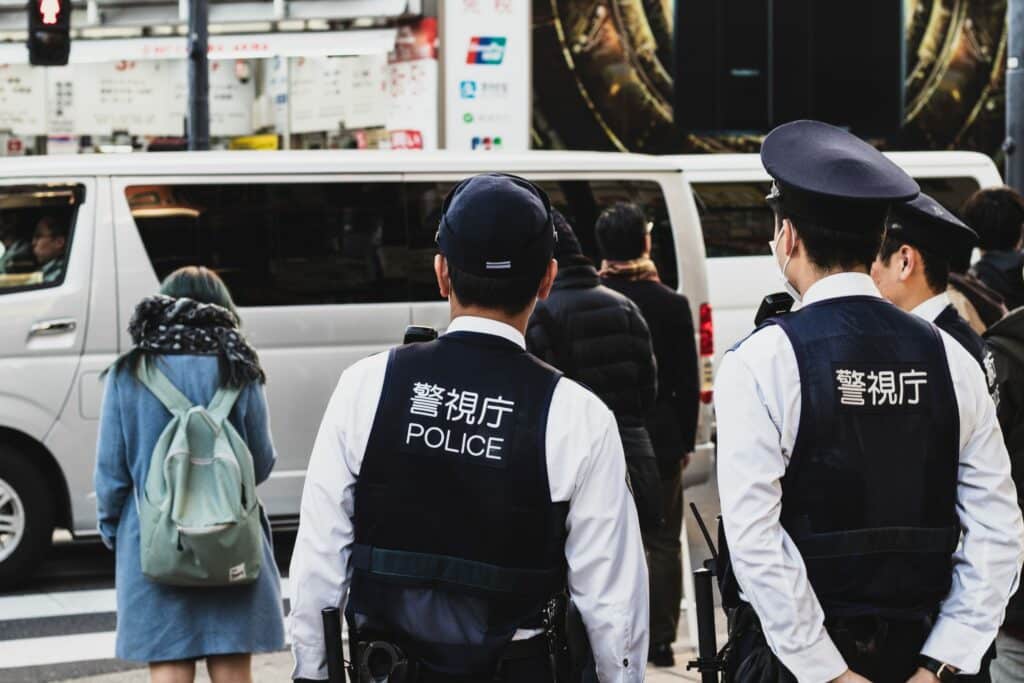Read this article to know about how to retire in Japan. However, before you pack your belongings, consider working with a financial advisor if you have a plan to retire in Japan.
If you have any questions or want to invest as an expat or high-net-worth individual, you can email me (advice@adamfayed.com) or use these contact options.
Introduction
Japan is famous for its bullet trains, incredible food, and some of the world’s cleanest, litter-free neighborhoods. Overall, the country is a lovely location to visit and live. Aside from its stunning surroundings, there are several reasons why individuals prefer to retire in Japan. If you’ve always wanted to retire to a beautiful country with an abundance of wonderful food, Japan may be the ideal retirement location for you.
Why should you retire in Japan?
Japan is one of the world’s most popular vacation spots. Every year, millions of people come to enjoy the exquisite cuisine, unique customs, and modern culture. Having said that, to retire in Japan is not the same as to visit as a tourist. So, what is life in the Land of the Rising Sun truly like?
The country has traditionally been at the forefront of technological development, resulting in a workforce that is both contemporary and well-educated. When you finally have a job, you’ll realize how efficient everything is. Outside of work, you’ll notice a thriving cultural environment, ranging from Osaka’s pulsing nightlife to Shibuya’s cutting-edge fashion. Japan is a diverse country to live in.
That isn’t to suggest it doesn’t have its drawbacks. Work-life balance isn’t even a concept in Japan, with many people actually pushing themselves to death. It is also home to some of the world’s most densely inhabited cities. Living in Japan takes a great deal of emotional fortitude.
Obtaining a Japanese Visa
Japan is a well-known tourism hotspot. Tourists from the United States can easily enter Japan. Americans can travel to Japan without a visa and remain for up to 90 days visa-free, with the status of Temporary Visitor. Although this is a single-entry visa, travellers may apply for two journeys within six months if they like.
If you want to stay for more than 90 days, you must get a spouse visa or a working visa. This requires you to either marry a Japanese citizen or work in Japan.
The ultimate route to obtaining a permanent residence visa takes years. To begin, you must enter the country on one-year visas for three years. You will then be eligible to apply for a long-term visa. This visa necessitates a Ministry of Justice Certificate of Eligibility. You must fulfill certain Immigration Control Act standards in order to obtain this certificate.
The long-term visa will be valid for another three years. You can be eligible to apply for Japanese permanent residency after six years. To demonstrate that you are proficient in Japanese and have a deep grasp of Japanese culture, you must go through a testing process.
Housing Cost in Japan
According to Numbeo statistics from March 2022, Japan has an incredibly high cost of living. The overall cost of living in the US is 6.11 percent cheaper than in Japan. Housing expenses in Japan, on the other hand, are around 40% lower than in the US.
The national average rent for a one-bedroom apartment in Japan’s city center is $726 per month. A similar apartment would cost around $1,376 per month in the United States. Furthermore, a one-bedroom apartment in downtown Tokyo, for example, costs around $1,226 per month. In contrast, a one-bedroom apartment in Manhattan costs roughly $3,344 on average. Outside of the city core, a similar flat in Tokyo would cost around $677, and in New York, approximately $2,268. Despite the relative worth of Tokyo’s housing expenses, the city remains one of the most expensive cities in the world.
Rent is substantially lower in Japan than in the US, so you may enjoy a comparable lifestyle for less. The cost of consumer products is likewise lower in Japan than in the US, thus your entire lifestyle will be less costly in Japan than in America.
Tax Obligations in Japan
In Japan, obtaining a permanent resident visa or a long-term visa is extremely tough. If you do receive one of these visas, though, you will be liable to taxes. You will only pay taxes on income generated in Japan if you are a non-resident with a one-year visa. In contrast, if you are a non-permanent resident who has been in Japan for not more than five years, you will be taxed on all of your income excluding overseas money that is not transmitted to Japan. You must pay taxes on all income generated in Japan and overseas if you are a permanent resident.
As a resident of the United States, you will be required to file taxes in the United States each year. You must also declare any international bank accounts. If you make money outside of the United States, you can use different provisions to lower your taxable income in the United States. These include, among other things, the foreign tax credit, the foreign earned income exclusion, and the foreign housing exclusion. If you want to anticipate your tax burden more precisely, you should speak with a tax specialist who is knowledgeable with both US and Japanese tax rules.
Healthcare System in Japan
The World Health Organization routinely ranks Japan’s public healthcare system among the top 10 in the world. This rating is based on financial efficiency, responsiveness, quality, and fairness. The government covers over 70% of citizens’ healthcare bills, with the government paying much more for low-income inhabitants. People contribute to this system through their taxes.

Anyone who has been lawfully residing in Japan for more than a year may enroll in the National Health Insurance or Employees’ Health Insurance programs. When you have insurance, you just have to pay 30% of your hospital bills. Appointments, hospital visits, and medicines are covered as medical costs.
Make Sure You Have Insurance for Living in Japan
Japan, despite its massive population, is a relatively secure country. Because the majority of residents have a good standard of living, crime is quite low. Having said that, it does happen from time to time. You’re undoubtedly also aware of Japan’s track record when it comes to natural catastrophes. Earthquakes and typhoons create headlines all across the world on a regular basis. You must have a solid insurance plan for this.
Safety and Security in Japan
Crime in Japan is quite low. Pickpocketing and other forms of small crime do occur in busy areas, as they do anyplace. Overall, food quality in Japan is quite excellent, and the danger of foodborne disease is very low.
Japan is vulnerable to natural calamities such as earthquakes. While these are not regular occurrences, it is vital to understand that they do occur. In Japan, fire is the second most hazardous natural catastrophe, particularly during an earthquake.

If you feel unsafe, there are “kobans” located around cities in Japan. A koban is a tiny police box that is free to use and gives a direct line to the police department. These are free to use if you have been robbed or if you have other emergencies to report to the police.
Pros and Cons of Retiring in Japan
Japan is a wonderful location that offers a lifetime of adventures and chances – but it is not without its drawbacks. What one individual considers to be a dream location may be an awful nightmare for another. Before you make the move, you’ll need to weigh the benefits and drawbacks of living in the country. Here are some important items to remember.
Pros
Unique Culture
If you’ve ever watched the film Lost in Translation, you’ll understand how disorienting Japanese culture can be – but for most tourists, this is part of the fun! There are so many unique activities and attractions that you won’t be able to discover anyplace else in the globe. If you’re a novelty junkie, you’ll never be short of options in Japan.
Delightful Cuisine
Food is a key component of the intriguing culture. You’re certainly familiar with the classics, but Japan, like the rest of the globe, has a rich and diversified culinary scene. Each city, village, and fishing port has its unique spin on locally sourced ingredients, with some genuinely inventive solutions to the country’s limited farmland.
World-class Shopping
From Harajuku’s high-fashion to Yokohama’s technology markets, you’ll have everything that you can possibly desire right on your doorstep. Huge shopping malls, lively marketplaces, and unique boutiques combine to create a varied retail environment. Before you’ve even had a chance to settle, you’ll be getting instructions from your buddies back home.
Advanced Technology
The rest of the world may be catching up now, but Japan was the epicenter of innovative technology for decades. It’s still on the leading edge of urban life, resulting in cities that are well-planned and efficient. The bullet train is a necessity, but even inside city areas, everything is in working order. Many North American and European expats have never seen anything like this before.
Cons
Extremely Costly
As you may have observed, Japan is one of the world’s most expensive countries. All of that quick transportation and lively culture comes at a price, and for many visitors, that price is simply too much. Before you decide to retire in Japan, you’ll need to be honest with yourself about your financial situation.
Work is Difficult to Come By
This ties along with the previous issue – most businesses prefer Japanese nationals and permanent residents. This is true all across the world, but in Japan, the procedure is more arduous. Even if you arrive on a working vacation visa, finding a job that fits the part-time criteria and is willing to let you go after a few months may be difficult.
Difficult Visa Procedure
Immigration is a nightmare! The visa policy is extremely inconvenient, putting you in the Catch-22 predicament of attempting to find work in order to obtain a visa while simultaneously realizing that most jobs favor those who have previously established residence. Your chances are slim if you don’t know Japanese and have no experience working in a shortage region.
Cities Are Densely Packed
For some, this is a benefit, while for others, crowded cities are a big disadvantage. At noon, apartments are cramped, trains are overcrowded, and restaurants are uncomfortable. You’ll have a difficult time in Japan if you’re not a city slicker. There are rural places, but finding quality job in those areas is practically difficult.
Conclusion
Japan is a lovely place that is in great demand among Americans looking to retire overseas. It is quite difficult to obtain residence in Japan, but if you can, it might be an excellent place to retire. The healthcare system in the country is among the best in the world.
Pained by financial indecision? Want to invest with Adam?

Adam is an internationally recognised author on financial matters with over 830million answer views on Quora, a widely sold book on Amazon, and a contributor on Forbes.



